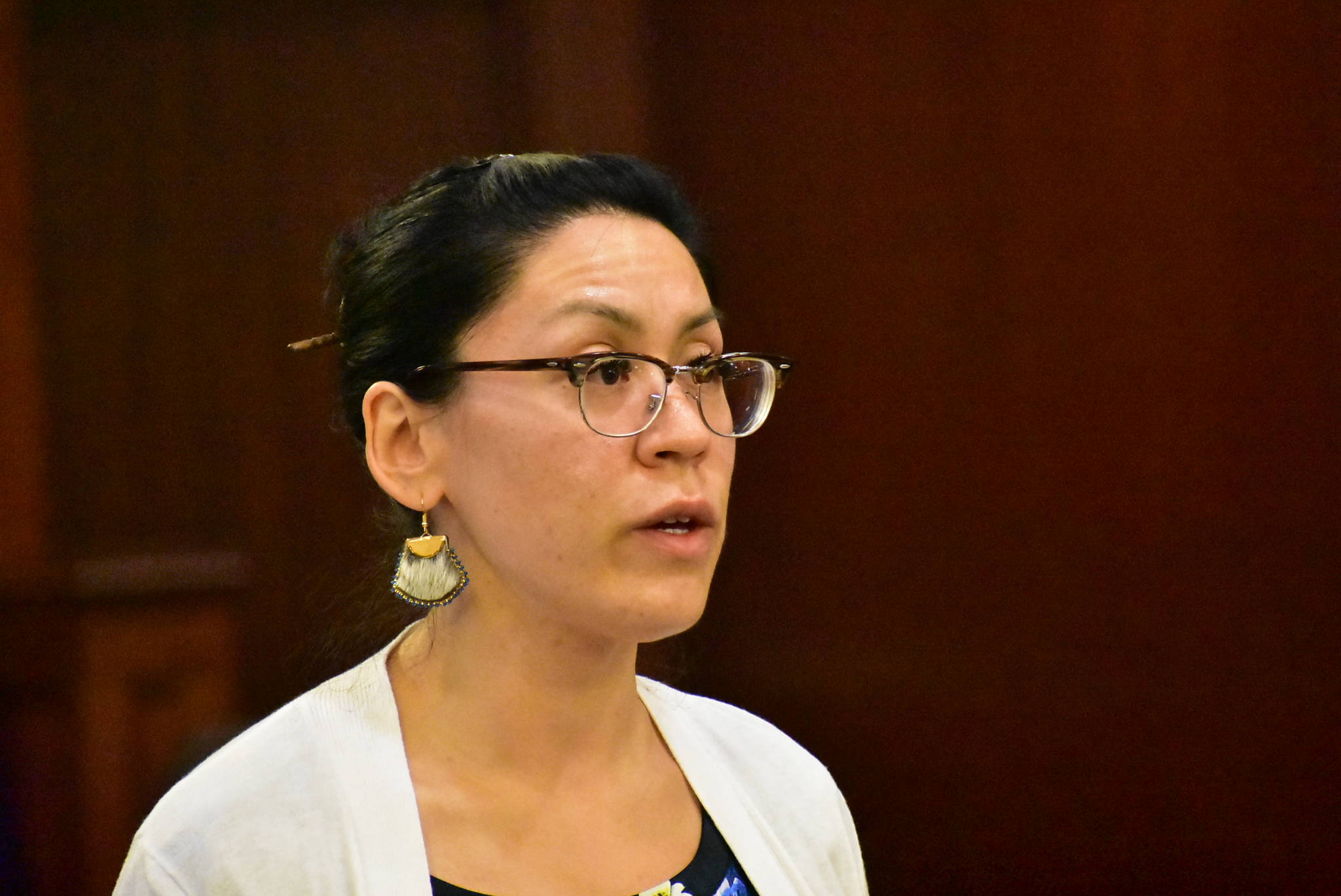Summary: The Senate will now pick up the amended resolution. It still needs a 2/3 vote to pass that body, which is 14 votes. Members of the minority who sponsored the amendment said this was a good compromise and narrow the focus of the suspended rules, while still giving the Legislature wide latitude to act.
2 p.m.
The amended HCR 17 passes 35-3, with Eastman, Sullivan-Leonard and Rep. Mark Neuman, R-Big Lake, voting against. The amended resolution will now go to the Senate.
The amendment passes 37-1, with Eastman as the lone nay vote.
1:48 p.m.
Narrowly focusing the bill would constrain the legislature too much, said Rep. Zach Fields, D-Anchorage, and there are things the legislature needs to do that are broad.
Sponholz says she appreciates the amendment introduced by the minority and that the intent of the resolution to rush through personal legislation.
1:45 p.m.
Rep. Lance Pruitt, R-Anchorage, says his concern was that suspending the “24-hour rule” would put a number of bills before the House that have nothing to do with the pandemic or passing the budget.
Amendment 2 is what his caucus has found to be a good compromise, he says.
Amendment 2, introduced by Palmer representative Delena Johnson, would limit the 24-hour rule to the budget and disaster relief.
The only thing the House should focus on should be the pandemic, he said, and rebuked a claim that his caucus does not understand the gravity of the crisis.
1:31 p.m.
House members of filing back into the chamber to continue debate on a resolution to speed up the legislative process in response to the pandemic.
11:50 a.m.
House is recessed to 1 p.m.
11:33 a.m.
The House is now debating HCR 17, which would let the Legislature to move faster in response to the coronavirus pandemic.
Eastman has an amendment to insert language saying “for the purposes of appropriations bills,” saying this would narrow the focus of the resolution and put sideboards on a resolution that might give lawmakers too much power.
The vote fails, 29-7.
11:25 a.m.
House takes an at ease.
Vote passes 31 yeas, 5 nays.
Nays were Carpenter, Eastman, Mike Prax, R-North Pole, Delena Johnson, R-Palmer and Colleen Sullivan-Leonard, R-Wasilla. Rep. George Rauscher, R-Sutton, was not in the room for the vote and was marked absent from the vote. Rausher is at the Capitol and has voted on other questions before the House.
11:17 a.m.
Rep. Tiffany Zulkosky, D-Bethel, says that many Alaska Natives in the state are not far removed from policies of assimilation. Her own father was not allowed to speak his native Yupick language as a young man.
“Recognizing Alaska’s tribes is an important part of the state’s healing moving forward,” she says.
The House takes an at ease.
Rep. John Lincoln, U-Kotzebue, says the bill would simply recognize what has been a reality in the state for years. Tribal governments provide myriad services in their communities and have for a very long time, he says.
10:58 a.m.
The House is moving to some of the bills rather than the resolution. Rep. Chuck Kopp, R-Anchorage is giving a summation of his bill for the state to recognize the state’s 229 already federally recognized tribes in the state.
This bill brings the state in line with what the U.S. Supreme Court has said is true and Congress has said is true, that there are thriving tribal governments that have been here for tens of thousands of years, Kopp says.
“The indigenous people were pushed off their lands under treaties,” Kopp says. “There have been lots of things where the United States hasn’t lived up to its words,” he says, citing the Trail of Tears, a massacre of Cherokee people following a treaty.
Rep. David Eastman, R-Wasilla, says he opposes the sweeping nature of the bill and adds that he hasn’t heard anything from any of his constituents on the bill.
Rep. Ben Carpenter, R-Nikiski, says there is a discrepancy between what he has been told by the bill’s sponsors and what he reads in the bill. The sponsor statements speaks only to formal recognition, he says, but supporter statements from organizations such as the Alaska Federation of Natives say the bill will remove barriers. How can both be true, he asks.
Either the bill is only a formal recognition, which would be better put in a resolution, or there is a bill with meaningful changes which aren’t clear in the bill, he says.
10:40 a.m.
Not a whole lot of green being worn today…
Yesterday, the House Majority Caucus introduced House Concurrent Resolution 17 which would suspend certain rules of the Legislature allowing the body to move faster.
Proponents say the resolution is a necessary move to act quickly in response to the coronavirus pandemic. Opponents say it cuts the public out of the deliberative process and rushes what’s meant to be a thoughtful, drawn-out process.
The resolution needs a 2/3 vote to pass the House (27 votes) and another 14 in the Senate. After a long break in yesterday’s floor session, the resolution was moved to today’s session, as were the four bills also on the calendar.
You can read yesterday’s coverage here.
• Contact reporter Peter Segall at 523-2228 or psegall@juneauempire.com.

